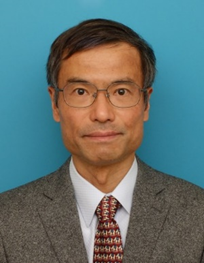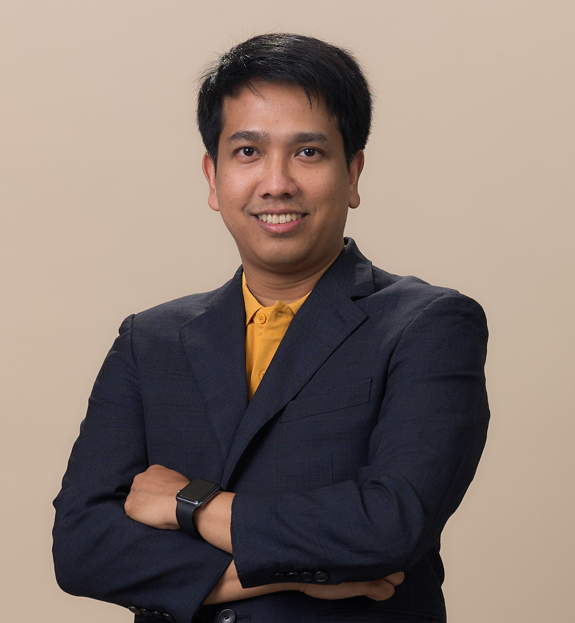Prof. Nobuo Funabiki
Okayama University, Japan
Nobuo Funabiki received the B.S. and Ph.D. degrees in mathematical engineering and information physics from the University of Tokyo, Japan, in 1984 and 1993, respectively. He received the M.S. degree in electrical engineering from Case Western Reserve University, USA, in 1991. From 1984 to 1994, he was with the System Engineering Division, Sumitomo Metal Industries, Ltd., Japan. In 1994, he joined the Department of Information and Computer Sciences at Osaka University, Japan, as an assistant professor, and became an associate professor in 1995. He stayed at University of California, Santa Barbara, in 2000-2001, as a visiting researcher. In 2001, he moved to the Department of Information and Communication Systems at Okayama University as a professor. His research interests include computer networks, IoT, optimization algorithms, educational technology, and web application systems. He is a member of IEEE, IEICE, and IPSJ. He was a vice president for conferences at IEEE Consumer Technology Society (CTSoC) in 2023 and 2024, and the chairman at IEEE Hiroshima Section in 2015 and 2016.
Prof. Tzai-Hung Wen
National Taiwan University
Tzai-Hung Wen received his B.S., M.S., and Ph.D. degrees in Bioenvironmental Systems Engineering from National Taiwan University in 1996, 1998, and 2006, respectively. He subsequently served as a postdoctoral fellow at the Center for Geographic Information Science, Academia Sinica, from 2007 to 2008. In 2009, he joined the faculty of the Department of Geography at National Taiwan University, where he served as department chair from 2018 to 2021. He also holds joint appointments as a professor in the Institute of Epidemiology and Preventive Medicine and the Graduate Institute of Public Affairs. Additionally, he served as Chairman of the Chinese Cartographic Association from 2019 to 2023. His research primarily focuses on modeling geospatial processes in human environments, with an emphasis on the spatial diffusion of epidemics, population mobility structures, and human-environment interactions. His recent significant research has been published in IEEE Transactions on Computational Social Systems, International Journal of Health Geographics, and Applied Geography.
Prof. Sheng Yi Wu
National Tsing Hua University
Sheng-Yi Wu received his Ph.D. from the Graduate Institute of Network Learning Technology at National Central University, Taiwan. During his tenure at National Pingtung University, he served as the Director of the International Master Program in STEM Education. He is currently a professor at the Center for Teacher Education, National Tsing Hua University, Taiwan. His research interests include STEM education, AI education, immersive education, and computational thinking. In recent years, in addition to leading several research projects on STEM and AI, he has served as the principal investigator (PI) for projects promoting immersive education in primary and secondary schools. Academically, he has been honored with the Wu Ta-You Memorial Award and was recognized among the World's Top 2% Scientists in 2023-2024.
Prof. Fahim Khan
Toyo University, Japan
Dr. Fahim Khan is a Professor at the Department of Information Networking for Innovation and Design (INIAD) in Toyo University, Tokyo, Japan. Prior to joining Toyo University, he served as a faculty member at the University of Tokyo, from where he also obtained his MS and PhD in Applied Computer Science. His recent research encompasses several avenues of applied computing, including: developing security measures for IoT and smart spaces; designing distributed systems using machine learning, generative AI, and blockchain; and leveraging EdTech and learning sciences for CS, STEM and SDGs education. His research publications have won multiple best paper awards at IEEE conferences. He actively serves as a committee member at numerous IEEE and ACM conferences. A Senior Member of IEEE, Khan is a recipient of IEEE Japan Medal. He is also a globally selected member of ACM Future of Computing Academy (ACM-FCA), an initiative that brings together next-generation leaders in computing to carry the computing community into the future.
Prof. Min Chen
University of Washington Bothell, United States
Min Chen, Ph.D., is a Professor in Computing and Software Systems Division, School of STEM at University of Washington Bothell. Prior to coming to UW Bothell, she was an Associate Professor at the Department of Computer Science, University of Montana. Her research interests include multimedia big data analytics, multimedia data mining, machine learning, and their applications on interdisciplinary projects. She received the Best Demo Award from the 2021 IEEE International Conference on Multimedia Information Processing and Retrieval, the Best Paper Award from the 15th IEEE International Conference on Information Reuse and Integration, and 2015 IGI Global Annual Excellence in Research Journal Award. Dr. Chen is currently serving as the Chair of the IEEE Computer Society Technical Community on Multimedia Computing (IEEE TCMC), the Associate Editor of IEEE Transactions on Multimedia (TMM) and International Journal of Multimedia Data Engineering and Management (IJMDEM). She was the TPC co-chair of 9 international conferences,symposiums/workshops, a steering committee member of 2 international conferences, and a key organizer of another 12 international conferences.
Prof. Xinguo Yu
Central China Normal University, China
Prof. Yu Xinguo is Professor at the National Engineering Research Center for E-Learning, Central China Normal University, Wuhan, China. He also holds an adjunct professorship at the University of Wollongong, Australia. He is the Chair of the Hubei Society of Artificial Intelligence in Research and Education. Prof. Yu's research primarily focuses on HI-AI collaboration, intelligent education, intelligent research, educational robotics, multimedia analysis, computer vision, and machine learning. With over 200 published research papers including over 30 SCI papers. Prof. Yu serves as an Associate Editor and Guest Editor for several international journals and has contributed significantly to the global academic community by serving as General Chair, Keynote Speaker, and Program Chair for more than 30 international conferences. Since 2021, he has pioneered and led the annual International Conference on Intelligent Education and Intelligent Research.
Prof. Joseline M. Santos
Bulacan State University, Philippines
Dr. Joseline M. Santos holds a Doctorate in Education major in Educational Leadership and Management. Currently, she is enrolled at the UP Open University, taking up a Graduate Certificate in Distance Education. Her extensive professional background encompasses teaching a diverse range of subjects, including technology for teaching and learning and research.Currently serving as a full-time Professor IV at the Bulacan State University College of Education, Dr. Santos also serves as an adjunct faculty member in the Graduate School. In addition to her teaching roles, she holds the positions of OIC-Director of the Research Management Office and concurrently serves as the Graduate School Head for Publications.Dr. Santos has also conducted a pioneering study that led to the development of the Artificial Intelligence Utilization Scale (AIUS) Framework for Research Writing, which became the basis for the Policy-Guidelines on AI Utilization in Research Writing at Bulacan State University.
Senior Lecturer Dr. Mariam Mohamad
Universiti Sains Malaysia, Malaysia
Dr. Mariam Mohamad is a Senior Lecturer at Universiti Sains Malaysia with research interests in mobile learning and mobile assistive technology. Recognized as a pioneer in mobile learning in Malaysia, her work has been cited by UNESCO and featured in Mobile Learning in Higher Education in the Asia-Pacific Region (Springer). She has presented her research widely at international conferences, including: UNESCO Mobile Learning Week 2014, Paris (Invited Speaker) ICEMT 2018, Okinawa, Japan (Invited Speaker) IMLF 2018, Singapore (Invited Speaker) ICEDU 2019, Kuala Lumpur (Plenary Speaker & Forum Panelist) ICEMT 2019, Nagoya, Japan (Plenary Speaker) IMRC 2020 and Education Science & Technology Conference 2020, Philippines (Keynote Speaker) TEL 2021, ICSE 2021, ICEEL 2021 (Keynote/Plenary/Invited Speaker) ICEPS 2023, ICLLL 2023, AETS 2024, ICETM 2024, ICLLL 2024 (Invited Speaker) She is also active in innovation, winning multiple awards for assistive learning tools, including gold medals at iCompEx 2016, IUCEL 2018, and IIDEA 2018, among others. Her research is supported by international grants from the Sumitomo Foundation and Japan Foundation. Dr. Mariam serves as an executive committee member of the Mobile Learning Association Malaysia, President of the Dyslexia Association (Penang), Advisor to the Special Needs Students Association (USM), and committee member of the R&D Unit at the Malaysian Association for the Blind.
Title: A Bibliometric Review of Mobile Assistive Technology Research for Dyslexic Children: Mapping the Landscape of a Decade
Abstract: Dyslexia, a prevalent neurodevelopmental disorder affecting reading and writing skills, poses significant challenges to educational attainment. In recent years, mobile assistive technologies have emerged as promising tools to support dyslexic children in their journey. Despite the increasing focus on mobile assistive technology for dyslexic children, a comprehensive overview of the research landscape is lacking. The field is characterized by a proliferation of studies, diverse methodologies, and an expanding knowledge base. This bibliometric review leverages advanced analytical tools, with a primary focus on the VOS viewer software, to conduct a comprehensive analysis of the literature spanning from 2014 to 2024. A carefully curated dataset, comprising research articles sourced from reputable databases, forms the basis of the analysis. Anticipated outcomes include visually rich maps depicting the citation networks and keyword co-occurrence patterns within the realm of mobile assistive technology for dyslexic children. We expect to identify key articles shaping the field, prominent clusters of research, and evolving trends. This bibliometric review aspires to contribute a panoramic view of the last decade's research landscape in mobile assistive technology for dyslexic children. The anticipated insights hold the potential to guide future research directions, technological innovations, and educational interventions, ultimately enhancing the support available to dyslexic children through mobile assistive technologies.
Asst. Prof. Orawit Thinnukool
Chiang Mai University, Thailand
Assistant Professor Dr. Orawit Thinnukool received his Ph.D. in Research Methodology, specializing in statistical modeling and data analytics, in 2014 from Prince of Songkla University, Thailand. At Chiang Mai University, Dr. Orawit served as the Head of the Innovative Research and Computational Science Lab, conducting interdisciplinary research in fields such as informatics, computational science, and cybersecurity. He has collaborated with leading international institutions, including the Centre for Transport Studies at Imperial College London, the Jameel Clinic at the Massachusetts Institute of Technology (MIT), USA, Kristiania University College in Oslo, Norway, and the Indian Institute of Technology Roorkee. Dr. Orawit has been awarded multiple grants from the European Commission through programs supporting higher education capacity building. His projects have focused on the integration of information technology in education, particularly in the areas of educational technology, innovative curriculum development in tourism, and sustainability-oriented education. Currently, he is serving as the Project Coordinator for an EU-funded initiative, and position of Acting Dean for International Collaboration and Fundraising at CAMT, CMU. In addition to his academic roles, Dr. Orawit serves on the editorial boards of several international journals, including: PLOS ONE (California, USA), BMC Digital Health, BMC Medical Informatics and Decision Making (BioMed Central, UK) His ongoing work not only focuses on publishing high-impact research but also on securing international research funding to advance academic innovation and development. In this invited speech, Dr. Orawit will share his expertise on accessing EU funding opportunities and discuss the role of information technology in enhancing education, particularly in resource-constrained contexts. His aim is to promote future-ready, inclusive, and sustainable education systems through international collaboration and innovation.
Assoc. Prof. Abu Bakar Mohamed Razali
Universiti Putra Malaysia, Malaysia
Abu Bakar Razali graduated from the Department of Teacher Education, College of Education, Michigan State University. Abu Bakar graduated with a doctoral degree of philosophy in Curriculum, Instruction, and Teacher Education, with graduate specialization on Language and Literacy Education. Abu Bakar currently works as an associate professor at the Department of Language and Humanities Education at Faculty of Educational Studies, University Putra of Malaysia. Abu Bakar's research interests are on the teaching and learning of English as a second language. He is particularly interested in reading and writing instruction and digital technology in the teaching and learning of English as a second language. He hopes to delve more deeply into the field of English language writing instruction and digital technology especially in the teaching and learning of English as a second language.










